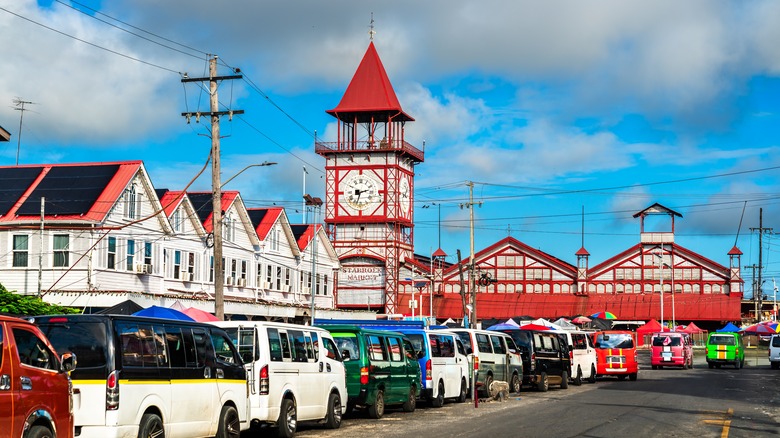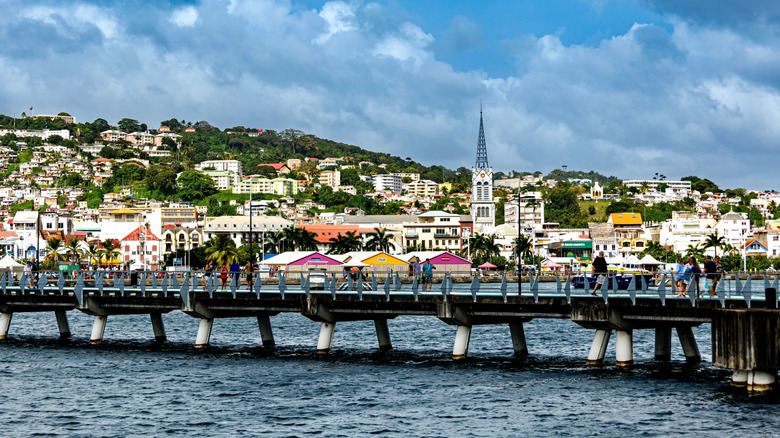Tourists May Want To Avoid This English Speaking Hub Of Colonial Beauty On Their Next Caribbean Getaway
Travelers heading to South America may have their eye on Guyana, not only because it's South America's only English-speaking country, but also because it's simply beautiful. It boasts the staggering Kaieteur Falls surrounded by Amazonian rainforest as well as architecturally fascinating cities shaped by the country's complicated mix of colonial influences and Indigenous cultures. Guyana's capital city, Georgetown, is a natural go-to — it sits right on the Atlantic Ocean, technically east of the Caribbean Sea, but is often described as a Caribbean destination. It is full of vibrant street life and colorful colonial architecture. Sadly, though, it is considered one of the most dangerous Caribbean destinations because of a high crime rate. The U.S. Department of State has issued a level 3 (out of four) travel advisory for the country, singling out Georgetown as a particularly high-risk area.
The advisory warns that there have been "increased reports of robberies, sexual assaults, and homicides" in Georgetown. According to Numbeo, Guyana ranked number 11 in the world for highest crime rates by country as of mid-2025 (the U.S., by contrast, ranked 58th). Mugging and robbery, violent attacks, and corruption and bribery are among the highest concerns in the city. There's also been a series of protests that have sometimes turned violent in Georgetown. In April 2025, for example, one protest devolved into looting and arson, with two of the protestors getting killed by police, AP News reported.
What to know before visiting Georgetown, Guyana to stay safe
The U.S. travel advisory for Guyana warns of a high level of crime in the country, but it also notes that Georgetown's safety level varies depending on where you are in the city. Most of the city's crime is concentrated in specific neighborhoods. The advisory says to avoid four areas in particular: Agricola, Tiger Bay, Albouystown, and Stabroek Market, which are all on the western side of Georgetown.
Academic research also backs up the idea that certain streets are markedly more dangerous. According to a study published in Crime & Delinquency, crime was clustered west of Vlissengen Road. Even if you avoid the high-risk zones, there's always a chance of petty crime, so make sure to read up on things like tips to protect yourself from pickpockets while traveling.
The advisory bluntly states: "Avoid walking in Georgetown after dark." Crime increases at night, with Numbeo noting perceived safety walking alone at night is far lower than during daylight hours. Some particular areas to avoid at night, which the travel advisory singles out, are the seawall east of Vlissengen Road, the National Park, and Bourda Market. Some travelers have noted that power cuts happen in the city, so it's also a good idea to bring a flashlight with you to avoid being stuck in the dark. Avoiding night-time excursions applies to longer-distance travel by car, too. If you're flying in, note that the closest international airport, Cheddi Jagan International Airport, is about 1.5 hours by car from the city. It's best to plan on getting to and from the airport during the daylight, since there have been reports of attacks on visitors commuting between Georgetown and the airport.

